How to create good Feng Shui in your home – 10 tips for every room
Benefit from the harmony and balance it brings. This is how to create good feng shui in your home
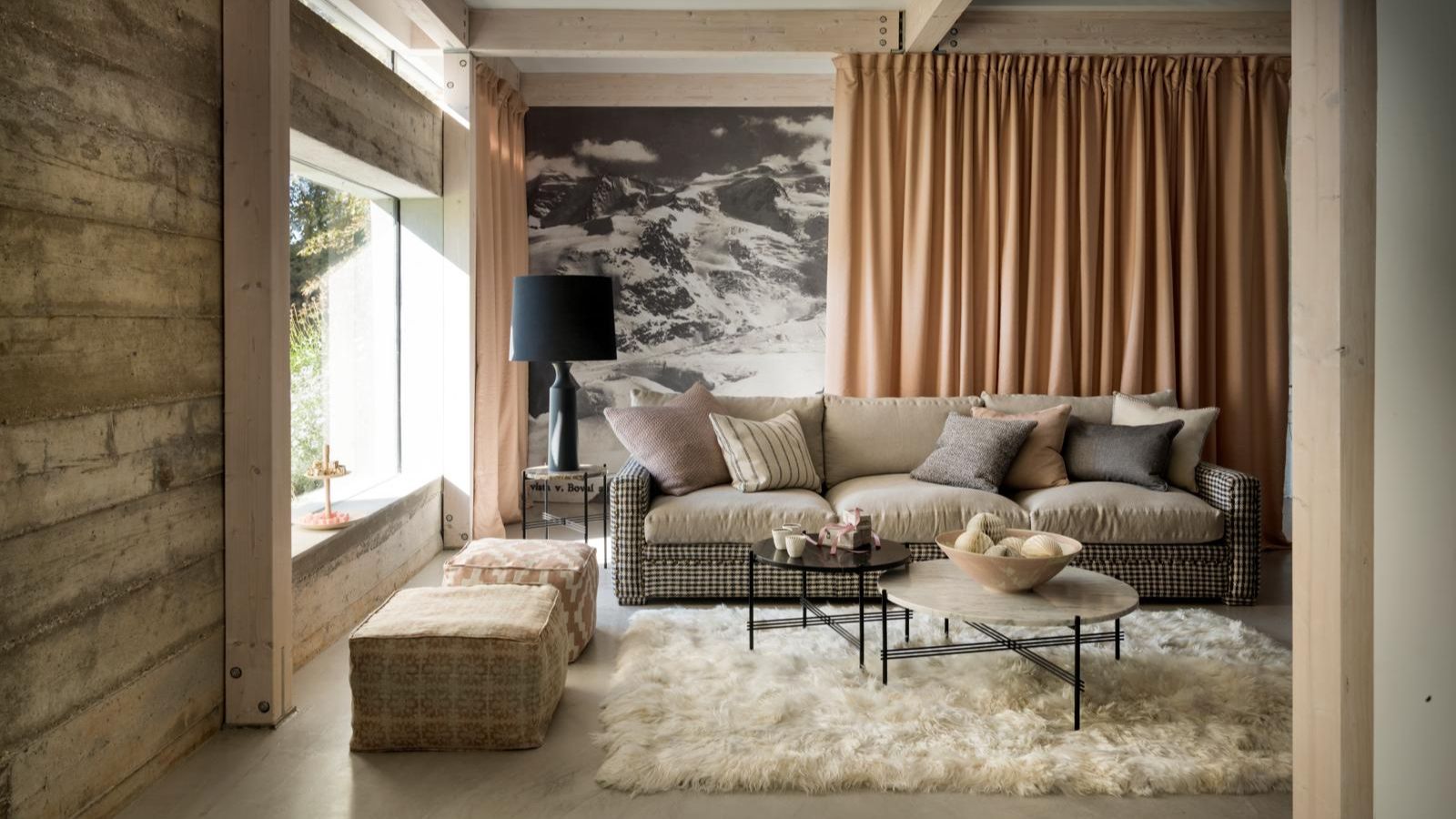

Feng shui may be an ancient practice, but its practitioners believe it has much to offer 21st century homes. By paying attention to our home environments, we can create spaces that support us, they say, and who would argue with the idea of a home that is both relaxing and revitalizing?
Practicing bedroom feng shui can enhance wellness and provide a rejuvenating sleep space, for example, and all around the home being mindful about spaces by understanding feng shui’s meaning can bring about a nurturing and comfortable environment.
Here, we offer expert advice on how to create good feng shui in your home room by room and make the simple changes that can bring enormous benefit to your surroundings – and your life.
How to create good feng shui in your home
Feng shui promises to make spaces feel harmonious and balanced. By arranging buildings, objects and spaces according to its principles the flow of positive chi – the life force present in everything – can be improved and negative chi warded off.
But how to bring feng shui’s benefits to your interiors? Take inspiration from our tips for every room in the home.
1. Consider the flow of chi in the living room
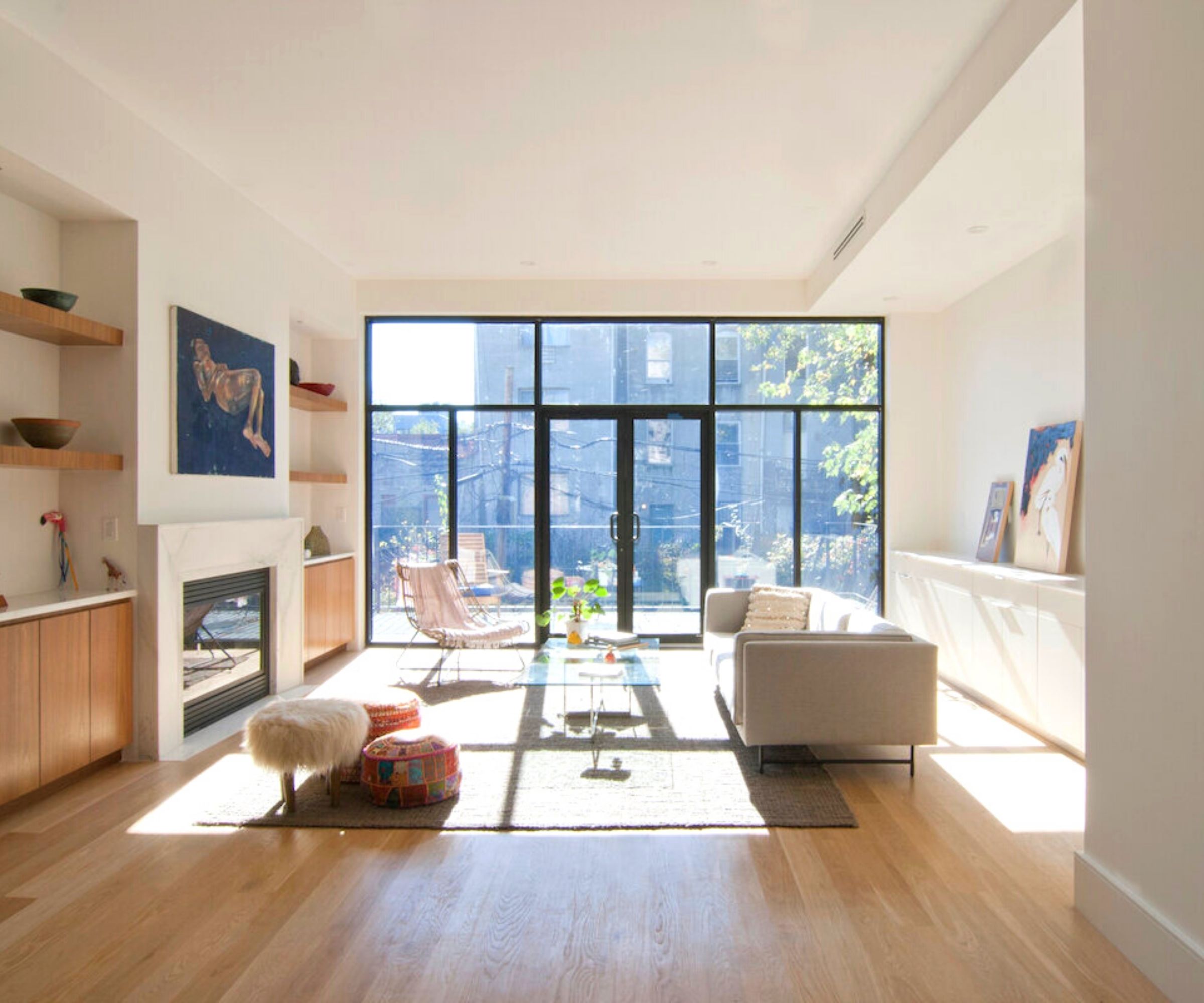
Living room feng shui can bring a positive atmosphere to this much used space. Where to start?
‘First, take a close look at the layout of your space and identify any areas that feel cramped or cluttered,’ advises Luke Lee, founder and designer of Ever Wallpaper, which aims to make the interior spaces of homes more comfortable as well as healthier. ‘These are areas where chi is likely to become stagnant, so you’ll want to make sure they’re well-ventilated and free of obstacles.’
The question of where to place a sofa is important in feng shui and it’s vital to the flow of energy. While you should never put your sofa in front of a window in feng shui, there are options such as next to a wall, and where you can see the door without being in line with it.
2. Focus on bedroom layout
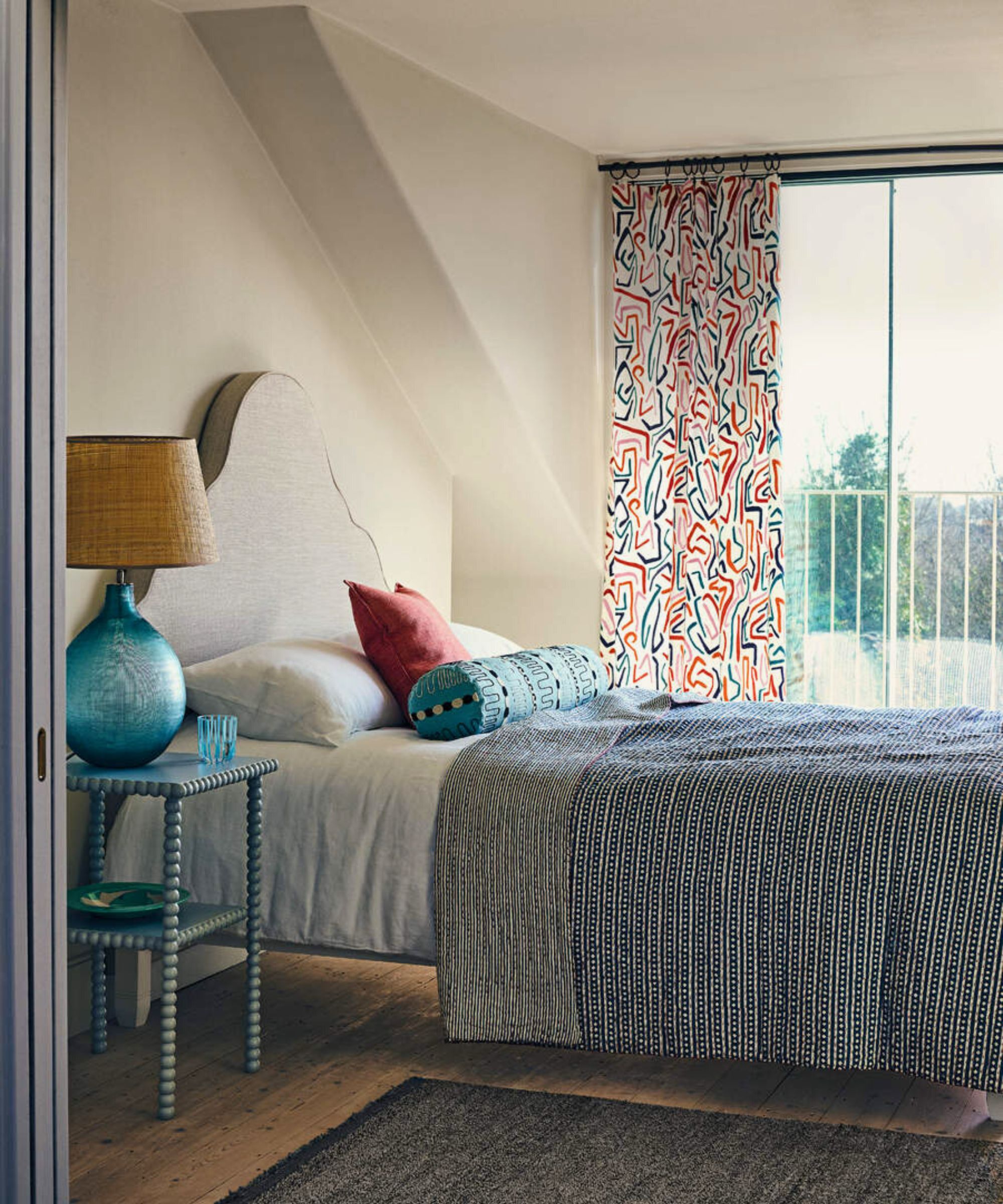
Arranging a bedroom for good feng shui energy aims to make it a space that will provide rejuvenation as well as comfort, and feng shui bedroom layout creates the conditions that will bring these desirable results.
Feng shui bed placement is one of principles of good feng shui furniture placement and crucial to creating a space said to have ‘good’ energy plus, as the largest piece of furniture in the room, it is key to how the space works.
The idea of the commanding position is important here and the bed should ideally be located so from bed you are facing the door but not directly in line with it. Note that your feet shouldn’t point directly out of the door as this is the feng shui death position, also known as the coffin position, and is said – you probably won’t be surprised to hear – to disrupt sleep. Feng shui also guides that the answer to the question is it okay to place a bed under a window is no.
3. Bring metal to the kitchen
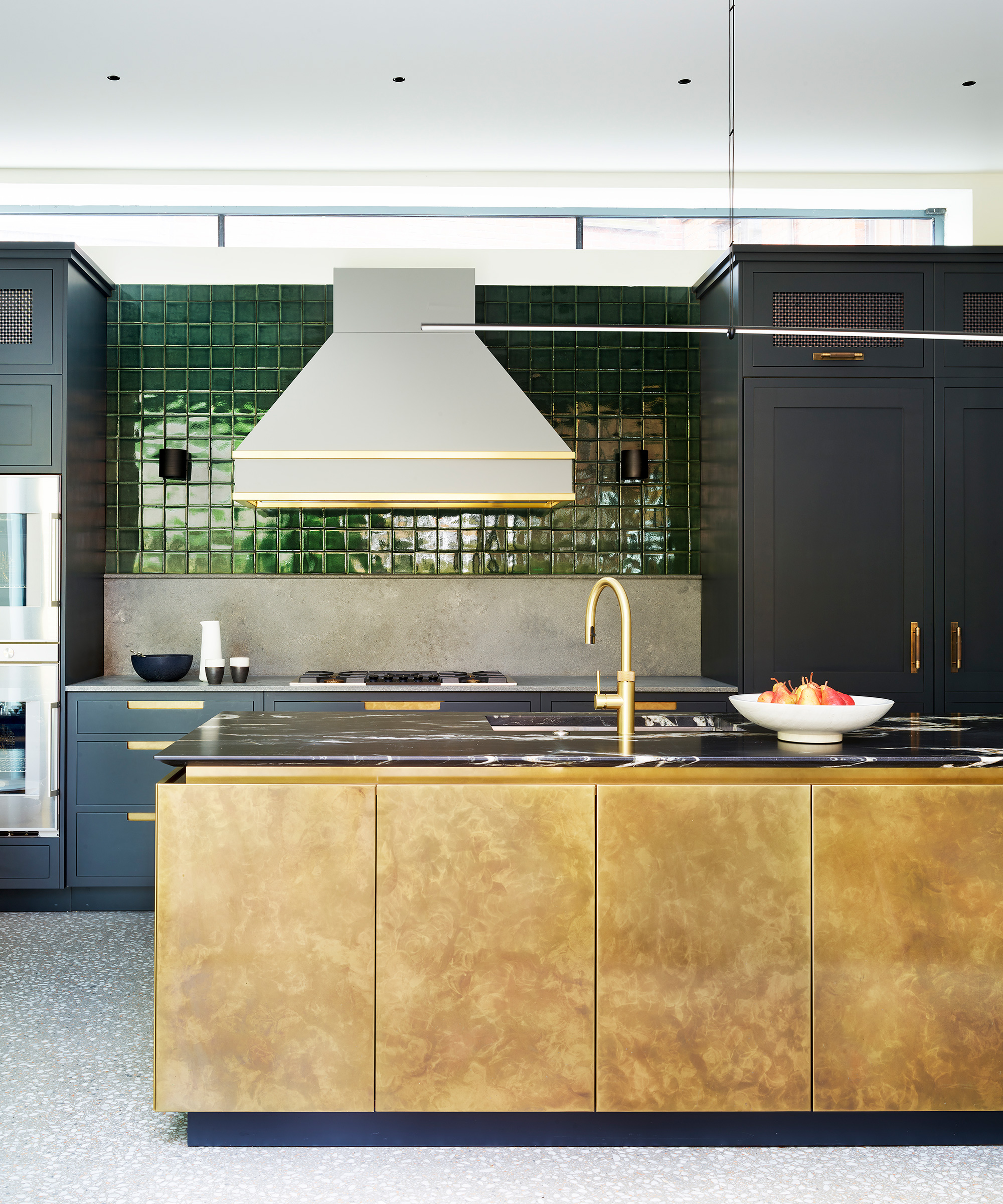
Metal is one of the five key elements of feng shui: wood, earth, water, and fire are the others on the list. Each element has specific associations and metal is associated with clarity and precision among other things.
Incorporate the element into the kitchen to introduce these attributes. Think metal backsplash ideas, or bringing it in through the choice of cabinet handles and knobs. But white and gray as well as metallic colors can also bring the metallic element into a home and in the kitchen, you might think of using these colors to paint walls or for cabinets.
4. Maximize productivity in a home office
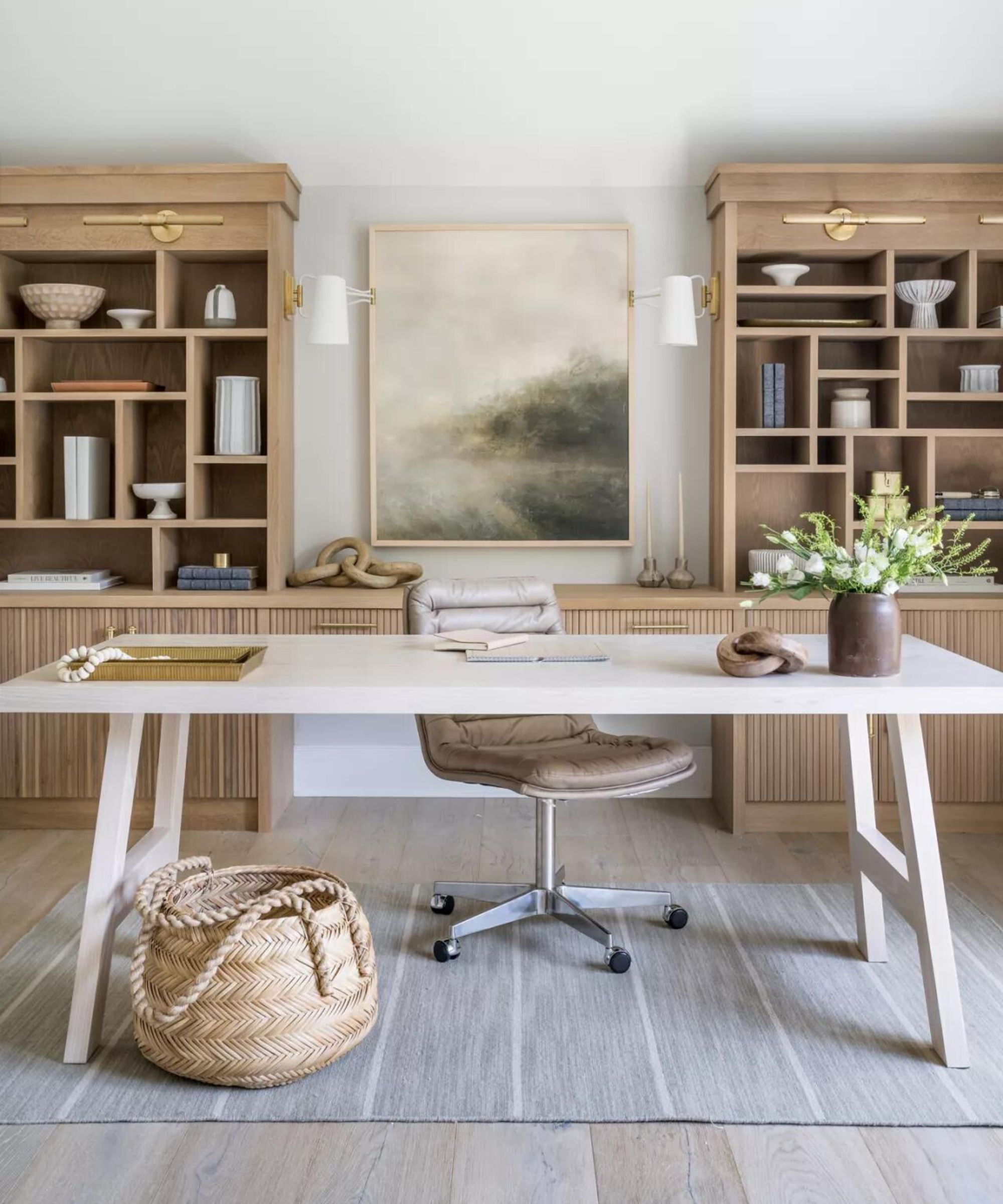
With more of us spending more time working from home, office feng shui ideas are worth paying attention to in order to boost your career and maximize productivity. The desk should be placed in the commanding position (as we’ve discussed for the bed in a bedroom layout, above). In the office that means so that you can see the door but the desk is not directly in line with it.
Take time to practice desk feng shui, too. Clear clutter, but consider adding in objects that represent the five elements of wood, fire, earth, metal, and water to balance the energy and create positive chi flow.
5. Think bedroom color
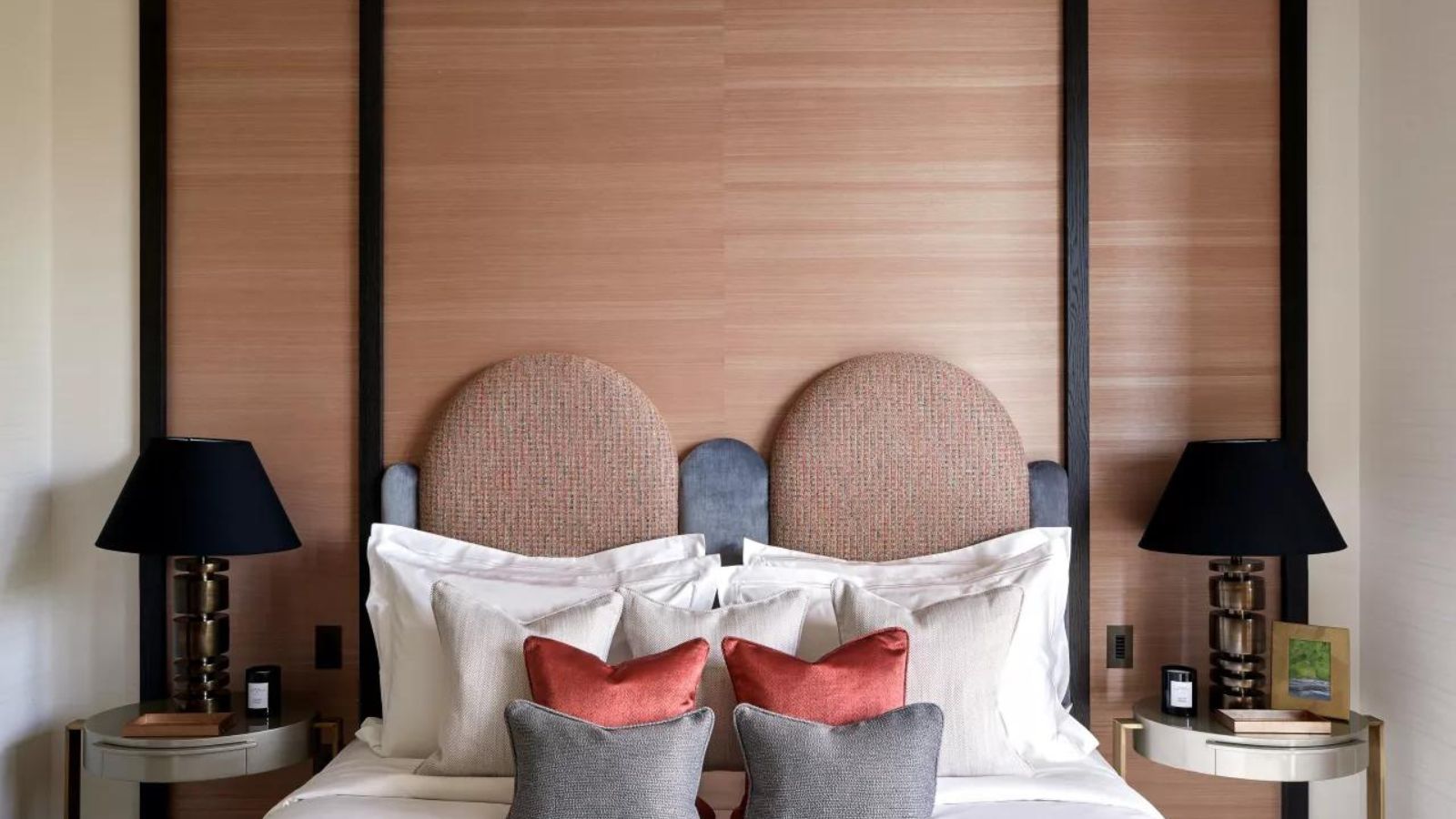
Feng shui bedroom colors should tend to the calming. ‘The practitioners of feng shui recommend warm, rich earth tones such as copper, coral, cream, and cocoa for creating a cozy and welcoming atmosphere,’ says Karin Sun, home design industry expert and founder of Crane & Canopy.
‘Using soft, natural colors such as light blues, greens, and lavenders also lead to a quiet, tranquil, and inviting energy in your bedroom. The addition of bright pinks and reds can increase the romance in a relationship; however, limit these colors to accents in the form of pillows, throws, or decorative pieces. Use a softer pink for your bedding or wall color. Otherwise, it can be too overwhelming.’
6. Discover the teachings on bedroom mirrors
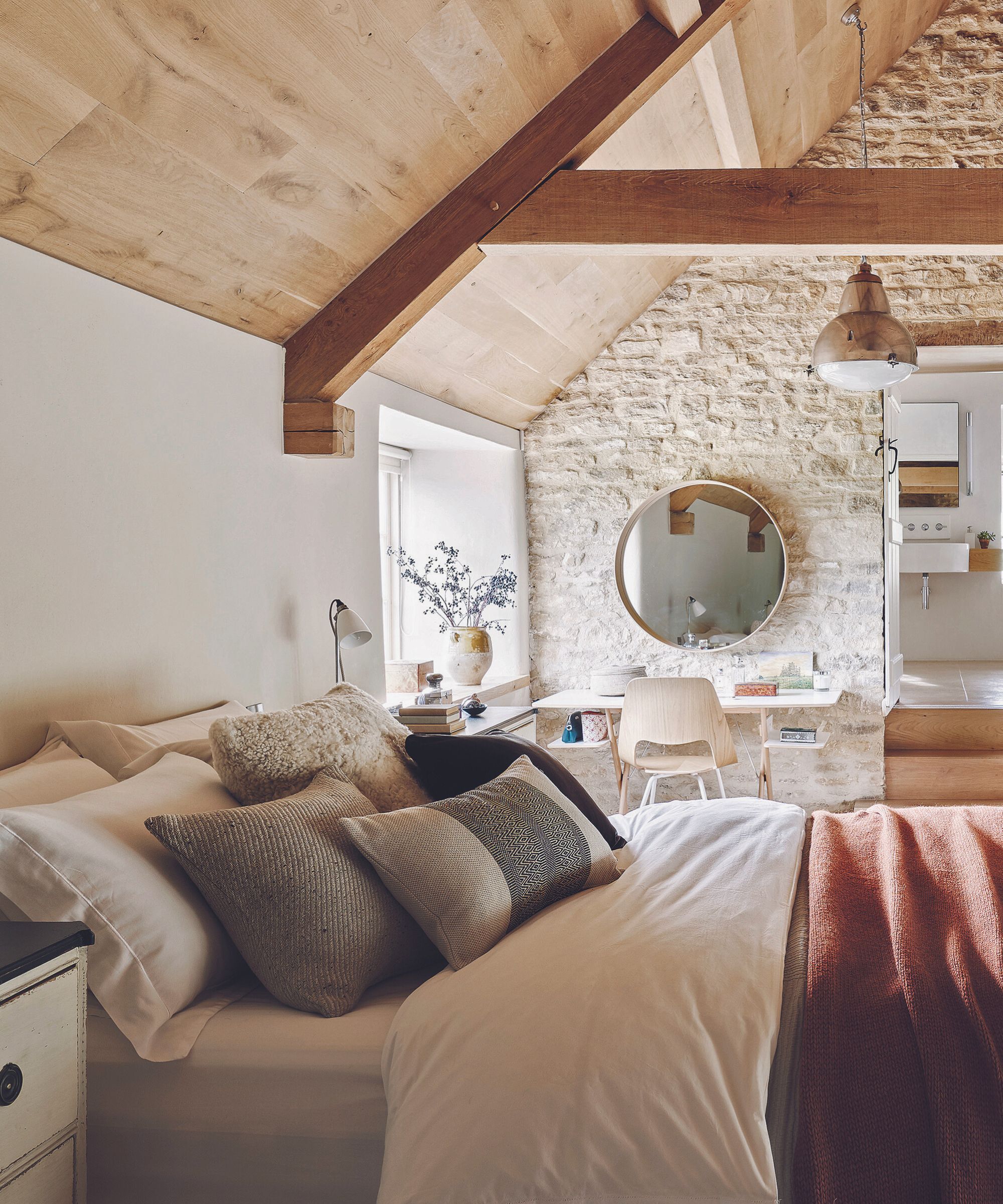
You may have asked the question should you have a mirror in your bedroom according to feng shui – and some practitioners say you shouldn’t. However, there are guidelines on where mirrors should be placed in a bedroom for feng shui.
Bedroom mirrors come into question because they are said to reflect energy around the room in a way that impacts on the quality of sleep and therefore wellbeing. But going without a bedroom mirror can seem inconvenient, and with correct placement you could include one.
A crucial rule? Don’t place a mirror opposite, next to, or over your bed. ‘In addition to bouncing too much energy around the room to allow for a good night's rest, these reflective surfaces are thought to magnify problems and worries,’ says Karin Sun.
7. Learn from bathroom feng shui
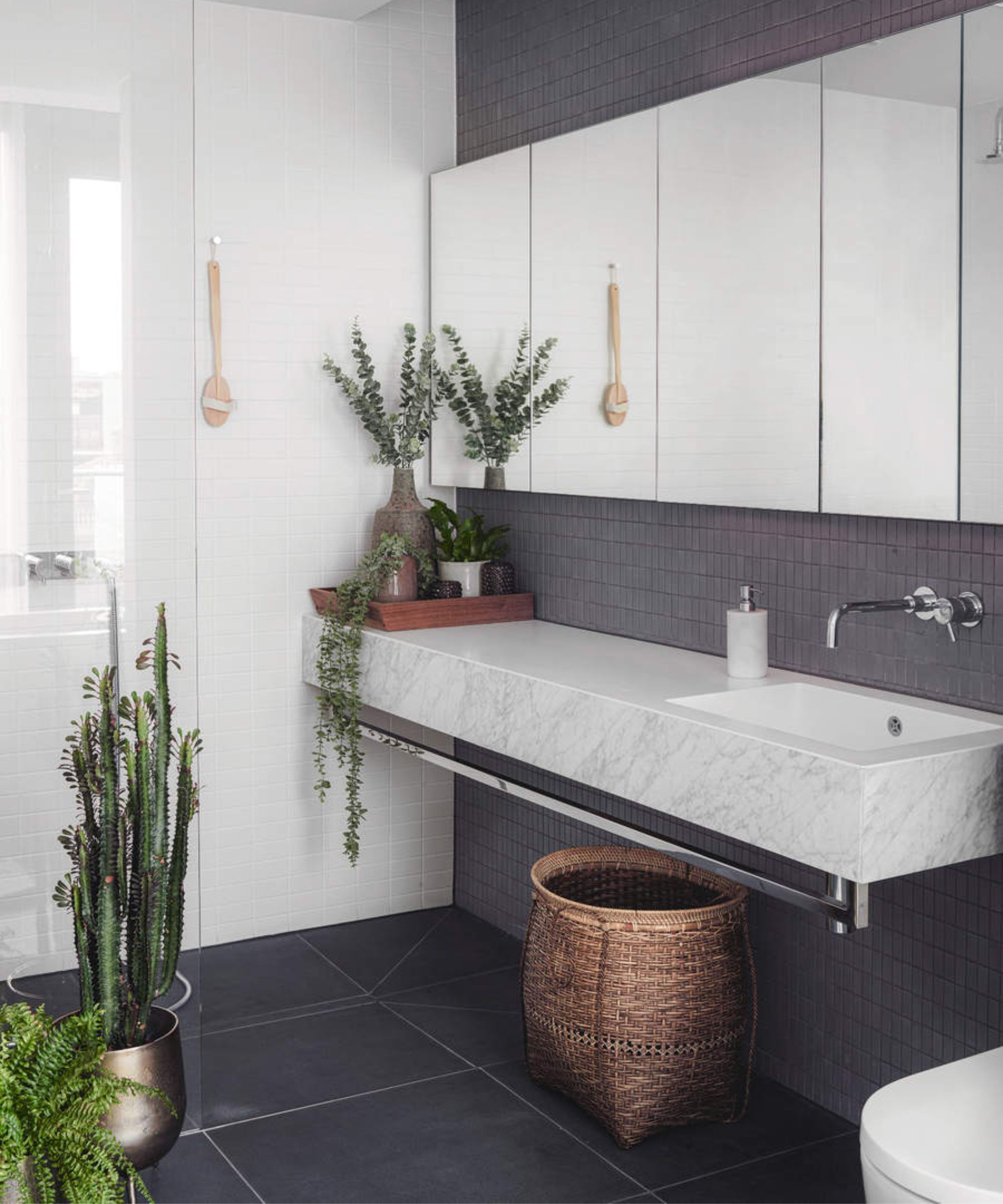
‘The bathroom represents the water element, and this can lead to a draining of wealth,’ explains Zoe Warren at PriceYourJob. So how to use bathroom feng shui?
‘Begin by ensuring your bathroom is always sparkling clean to give off a true spa-like environment,’ she says. ‘The bathroom should represent a place of healing and rest.’
Bring in feng shui plants, too, while remaining aware that there are feng shui plants to avoid. ‘Placing a living houseplant on the back of the toilet can help to transform the downward water energy into upwards life energy since plants flourish and grow with the help of water,’ continues Zoe. ‘Make sure the toilet seat stays down whenever it is not in use. Keep all mirrors clean so that they can reflect with intention and clarity.’
8. Set the tone with entryway feng shui ideas
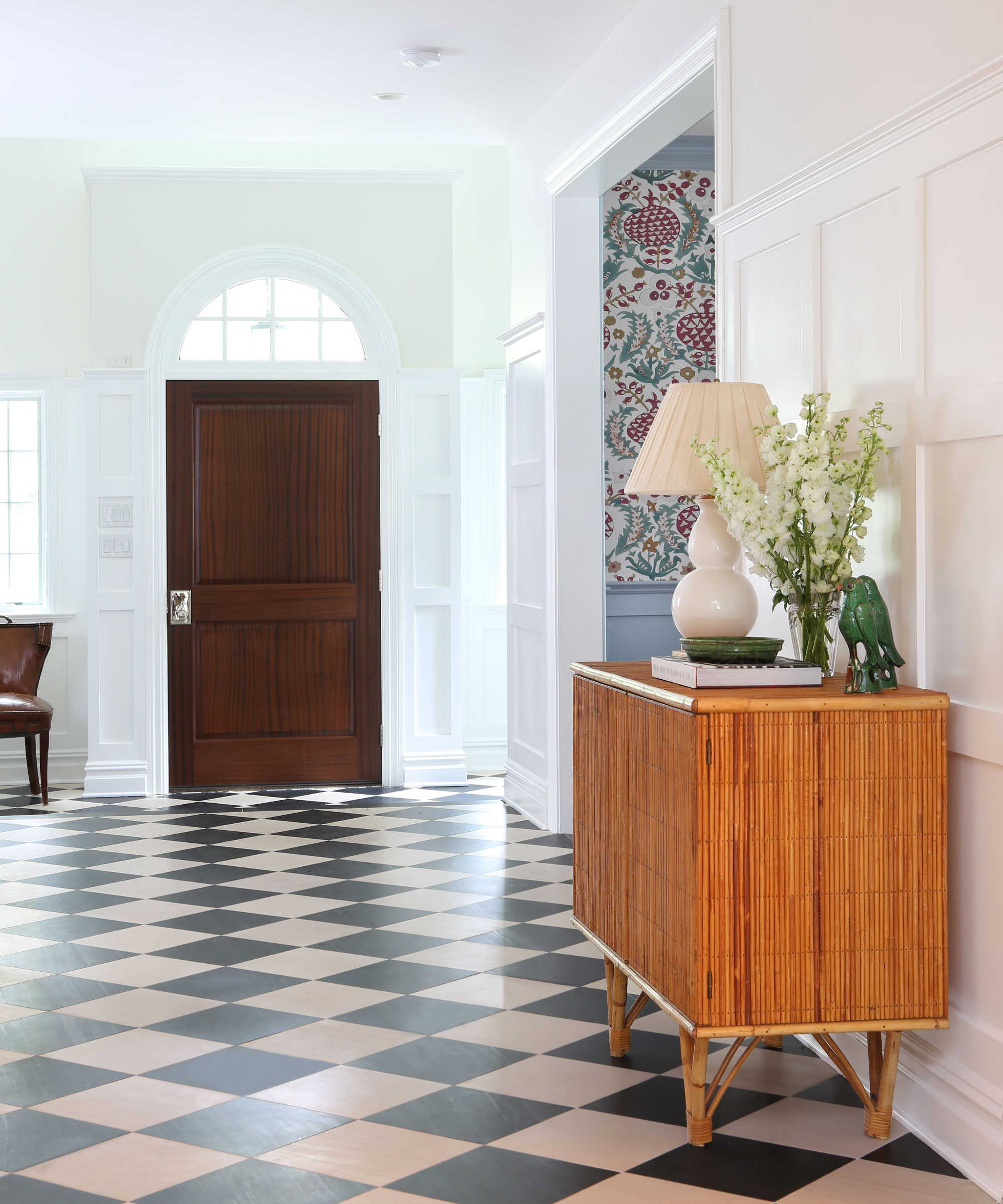
The entryway sets the tone for a home and entryway feng shui principles have much to offer in elevating the space.
‘The entryway is all about first impressions, how we greet those we love (including ourself) and the transition between our outer life and inner world,’ says Kimberly Garner, founder of the School of Holistic Design.
‘Have a place for everything and keep everything in its place (think keys, glasses, mail, hat, coat, etc),’ she says. ‘Walking into a home that supports your needs and lifestyle is key.
‘Is there a place to sit while taking off shoes? Always take off your shoes upon entering, and keep inside shoes or slippers by your entry as a symbolic welcome home gesture. A plant offers a lovely reminder of growth and life.
‘Create a visual anchor that feels good and that you see when you step through your entrance. This sets the tone for the moments which follow. Place something in the space that symbolically reflects your values, intentions, dreams.’
9. Focus on the dining room
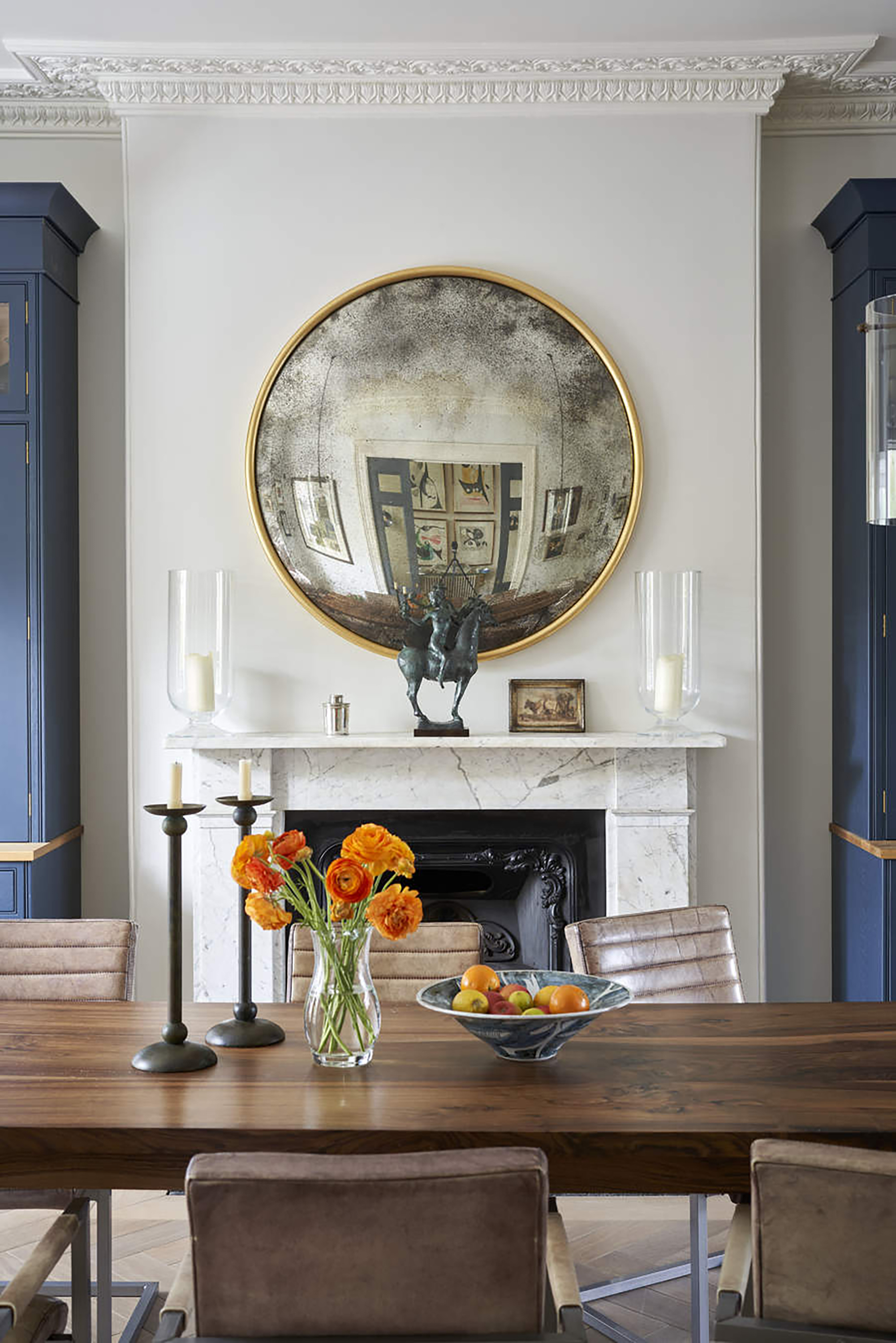
Feng shui for the dining room can help create an atmosphere that nurtures relationships.
‘The dining room is a place for gathering to eat and nourish with each other,’ says Zoe Warren. ‘This is a place where you can connect with your loved ones and also represents friendship and wealth.
‘If your dining table is used for purposes other than dining, be sure to clear everything from the table before mealtimes. Use the dining table on a regular basis for meals to attract more friendships. Fresh flowers in the dining room can invite positive energy.’
Consider adding a mirror to the room. ‘A mirror which reflects the table is said to enhance abundance because it symbolically doubles the amount of food,’ says interiors therapy and feng shui expert Suzanne Roynon. Think of the seating plan, too. ‘The head of the family should sit facing the door,’ she says.
10. Edit accessories in the living room
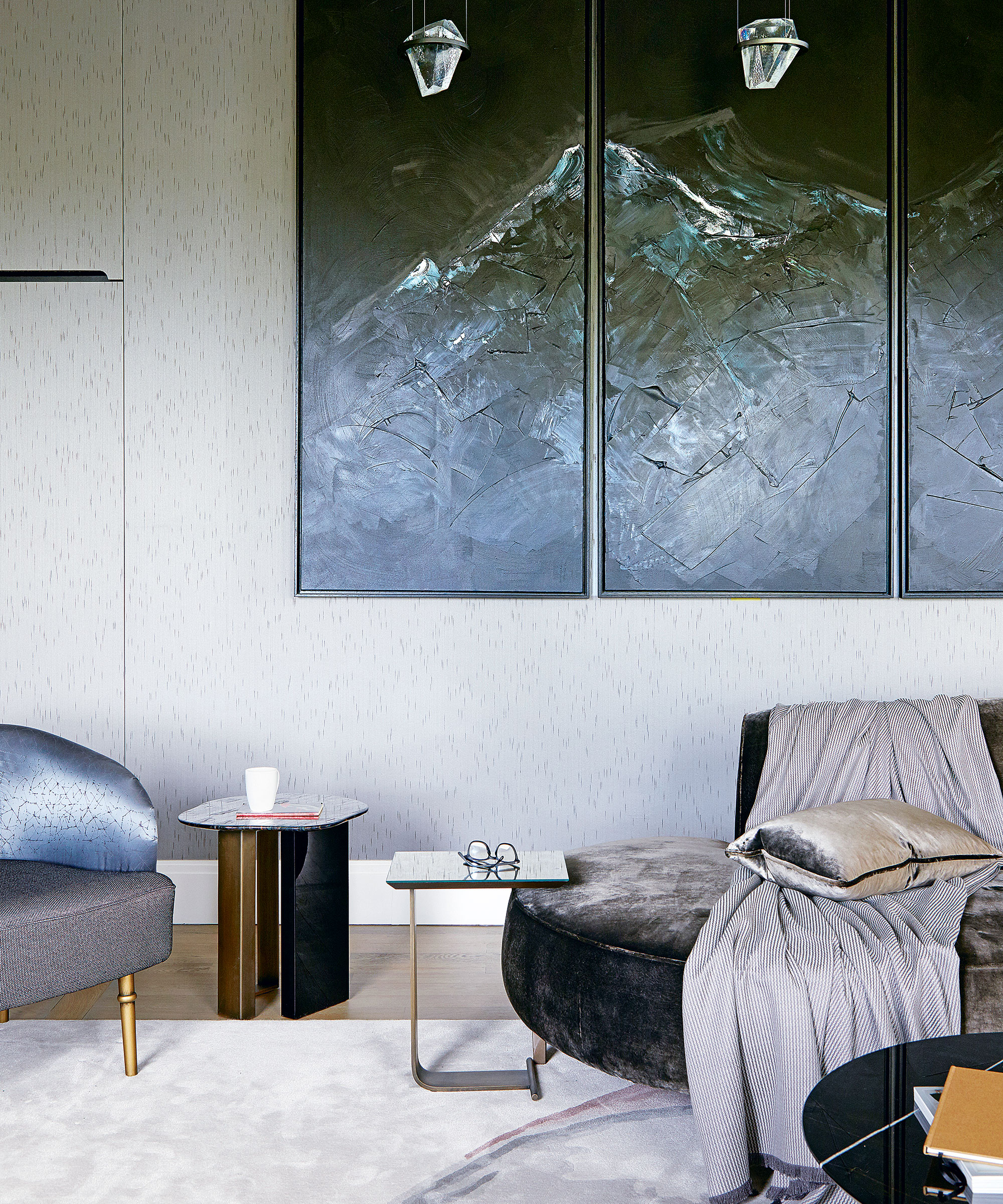
A living room cluttered with furniture is to be avoided when following feng shui principles, and make sure to take the same approach when it comes to decorative accessories.
Curate collections and ensure each object has the ability to bring a smile to your face or bring back a positive memory or association so that the environment has a good influence on wellbeing. Consider artwork on the walls as well and avoid any negative symbolism.
How can I improve my feng shui at home?
To improve feng shui at home, begin by thinking of the space. Are pieces of furniture blocking your path through your home, and are closets and drawers overfilled? Creating space within rooms and the smaller areas of a home both invite opportunity and ensure there is a feeling of flow within the space.
Be sure to let air into rooms, and maximize light, too, by swapping heavy drapes to optimize the daylight reaching rooms. Effective lighting schemes are also key to illuminate the whole of a space after dark.
What are the 5 principles in feng shui?
The five elements in feng shui are wood, earth, water, metal, and fire. These can be brought into the rooms of a home easily: think wood for furniture, for example, metal for vases or sculptures, plants to bring in the earth element and reflective surfaces to represent water. The element of a fire could be introduced through an accent color, meanwhile.
Sign up to the Homes & Gardens newsletter
Design expertise in your inbox – from inspiring decorating ideas and beautiful celebrity homes to practical gardening advice and shopping round-ups.

Sarah is a freelance journalist and editor. Previously executive editor of Ideal Home, she’s specialized in interiors, property and gardens for over 20 years, and covers interior design, house design, gardens, and cleaning and organizing a home for Homes & Gardens. She’s written for websites, including Houzz, Channel 4’s flagship website, 4Homes, and Future’s T3; national newspapers, including The Guardian; and magazines including Future’s Country Homes & Interiors, Homebuilding & Renovating, Period Living, and Style at Home, as well as House Beautiful, Good Homes, Grand Designs, Homes & Antiques, LandLove and The English Home among others. It’s no big surprise that she likes to put what she writes about into practice, and is a serial house renovator.
-
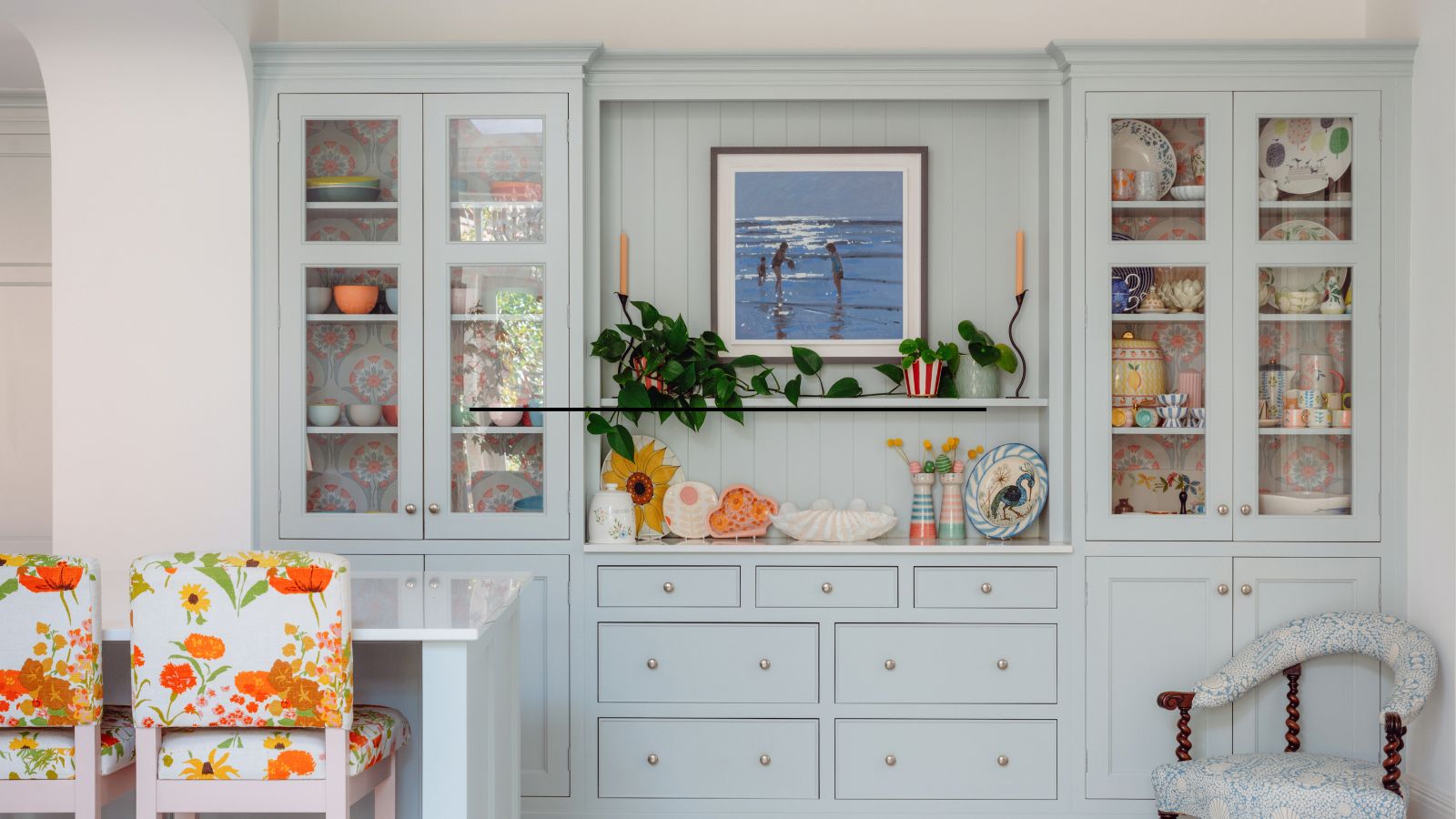 Designers say these are the 10 kitchen cabinet details to know about if you want to elevate your space
Designers say these are the 10 kitchen cabinet details to know about if you want to elevate your spaceIt's all in the details – the designer touches that make all the difference to your kitchen cabinets
By Karen Darlow Published
-
 Garden experts warn against overcrowding flower beds – why this on-trend look is the worst thing you can do
Garden experts warn against overcrowding flower beds – why this on-trend look is the worst thing you can doIt's tempting to create an abundant, overflowing garden bed, but it can limit your plants in more ways than one
By Tenielle Jordison Published